Hosted by Claire Musters
This month I’m reading…
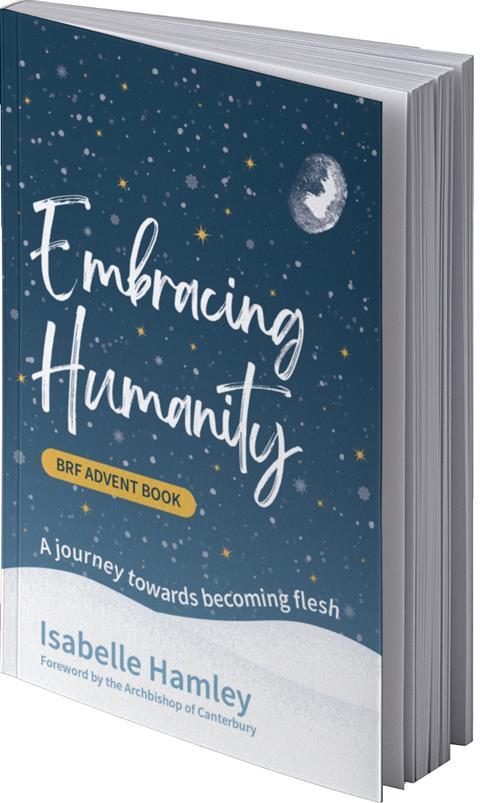
Embracing Humanity:
A journey towards becoming flesh
By Isabelle Hamley (978-1800392267, BRF)
This is BRF’s official Advent book, so provides daily reflections from the start of Advent right up to Christmas Day. Each day’s reading is based on a short biblical passage (displayed at the start). The reflections fall within four sections: The Word became flesh, He came into the world, Living the story and Embodying the promise. Each day’s entry ends with some points for personal reflection and an original prayer. At the end of the book are suggestions for groups to discuss each section, ending with a prayer activity.
Isabelle is a theologian, writer and broadcaster, previously theological adviser to the House of Bishops and now principal of Ridley Hall, Cambridge. Her writing is nuanced and thought-provoking. There is much within this book to stir, challenge and expand, encouraging us to think about our own humanity through new eyes, as well as how we relate to others and society at large. In my questions to Isabelle, I pulled out some of the reflections’ themes, in order to give you a flavour of what to expect.
It is interesting to read an Advent book that has a full focus on Jesus’ humanity, especially at a time when culture is obsessed with AI, which you acknowledge: what was the process that led to you landing on this subject?
I’ve been thinking about what it is to be human a lot, in relation to so many things. But many of my thoughts have crystallised around the effect of the pandemic. I was very ill for a long time, which gave me time to think! So many things were thrown in the air: how important is human contact for humanity? Are we fully human if we are completely alone? How much does isolation affect our humanity? COVID also made us really aware of our bodies – the dangers and vulnerabilities of bodies, the proximity of the bodies of others. It felt like the body reasserting itself in a culture that is always trying to transcend it, or ignore it or tame it.
You say right at the start that you grew up in France in an atheist family so didn’t hear the Christmas story until you were a teenager – what impact did watching that first nativity have on your faith journey?
I think that is the point at which I started my journey towards becoming a Christian. I recall being totally blown over by the story; by the beauty and the fragility of it. I had heard a bit about God before that, but for me it was a point at which it all connected at an emotional level. There was something beyond words about it.
A thread throughout the reflections focuses on how dangerous it was for Jesus to be born at that particular time, how his family had to flee and how that reflects the forced displacement of people throughout history. Yet you pick up on the fact that Jesus, although “the guest among us” often ended up as host – what does that teach us?
I think that if we ask one another: “What is it to be human?” we often naturally focus on the good stuff, or on the stuff we have in common that’s obvious. But actually, human experience throughout the centuries hasn’t been all community and love and good stuff. Being fragile, unwell, displaced, the victim of violence or conflict is far more characteristic of our humanity. Jesus was constantly straddling between being a human person who didn’t belong – a refugee in Egypt, a travelling prophet in the house of Pharisees, a sinless person among sinners, God among humans. He didn’t really belong anywhere. He was always a guest on human territory. And yet at the same time Jesus was also the one who created belonging for those around him: by sharing a picnic on a hill, by washing feet in a borrowed room, by inviting others to journey with him. He embodies belonging and community in the middle of displacement and being alien.
I love how you bring out how Jesus embraced being dependent on others – why do you think we struggle with that when we were made to be relational beings?
Well, it’s probably something about being much less than perfect! But I wonder whether it’s about fear, as well: that we’re afraid other people will let us down; we’re afraid that others will be better than us and we’ll suffer as a result. And so we try and do it all ourselves, and we try and stay in control of everything. Which of course doesn’t work! All of us are dependent on others, but we hide our dependence, particularly in the West, behind wealth and comfort and things – and we forget that we are dependent on millions of others who work to produce, transport and sell these things. But we have this fiction that to be a grown up is to be independent, to be able to make it on your own, to be an autonomous person. That’s a legacy of the Enlightenment, partly. But it is a fiction – to be a grown up is more about accepting our interdependence, and accepting both our limitations and our responsibilities.
You invite us to stop and consider what our expectations are, and show how Jesus challenged people’s expectations: why do you think that was the case, and what did it reveal about their (and our) mixed motives?
We’re used to domesticating God a bit, to making God in our image, and imagine that what we want or value, God wants or values. But, of course, God’s thoughts and ways are far beyond our own! And the thing I think that surprised people was when something seemed so obvious to them, but it wasn’t what Jesus did – things like politics, how to conduct yourself in public life, what you do with power, who and what you value. So much of that is shaped by our culture – and Jesus cut right through it. ‘How’ he did things mattered as much as ‘what’ he did. He wasn’t just ‘solution-focused’ or taking the most efficient route to things! He gave people chances and took risks – we’re fearful creatures who don’t do that much. And he kept things together we don’t keep together: love and challenge, acceptance and transformation, justice and grace. We humans show that in response we prefer to put people in categories that are easy to understand or manipulate, and we’re not really willing to engage with the complexity of the world.
As you were researching and writing did you learn anything new about Jesus or was there a fresh challenge for you personally that you are happy to share?
I am not sure it is really new but I keep being challenged again and again by the idea of embracing my limitations – those things which I rail against and want to transcend but can’t. I have lived with long COVID for the last four years, and I feel painfully limited by tiredness and breathing problems. The challenge for me is to not go down the road of thinking I am entitled to something better and become bitter, but to think that this is part of my humanity, and while it is OK to be sad and mourn what I have lost, there is also somehow something to accept in my fragility, and gifts to explore in how it reshapes some of my relationships and ways of being.
Jesus’ humanity gave us a glimpse of the promise that one day we will no longer live with brokenness; our humanity will be transformed. You say it is also worth pausing to think how extraordinary a gift it is to be human. Could you end by unpacking that statement a little here?
It is easy to focus on all the difficulties of being human, and forget the wonder of it: the gifts of relationship, of being set on this beautiful planet and of being cherished by God that come with it. When we think of heaven often we think of being freed from our humanity almost; but we will be freed from our brokenness, which isn’t the same thing! We will still be human: small, vulnerable, dependent, limited. But somehow this will no longer be a ‘problem’ but rather part of the gift.
Isabelle Hamley on: The books that have changed my life
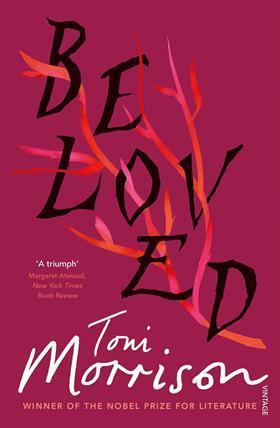
Beloved by Toni Morrison
This book is so stunningly beautiful, sad and moving. It made me think about history, race and memory and inspired me to read more diverse authors.
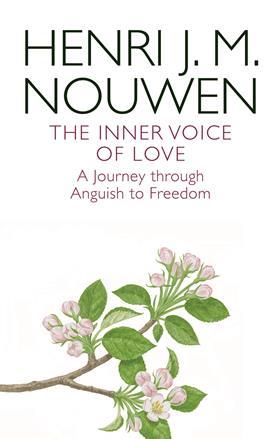
The Inner Voice of Love by Henri Nouwen
In terms of my personal life, this was life-changing. It helped me on the journey towards accepting a little more of myself (I have struggled with self-esteem) and seeing myself before God.
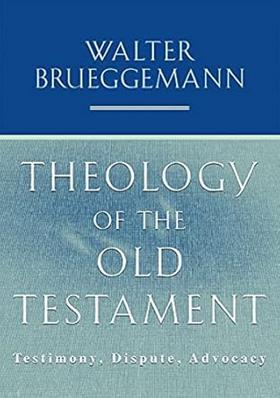
Theology of the Old Testament by Walter Brueggemann
This has had a massive impact on my faith and writing. It inspired me to study the Old Testament, and fed my passion for justice. Brueggemann really is one of my all-time heroes




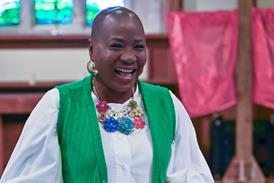








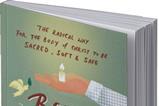
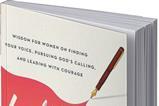
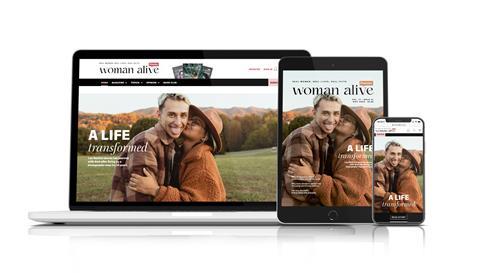
















No comments yet